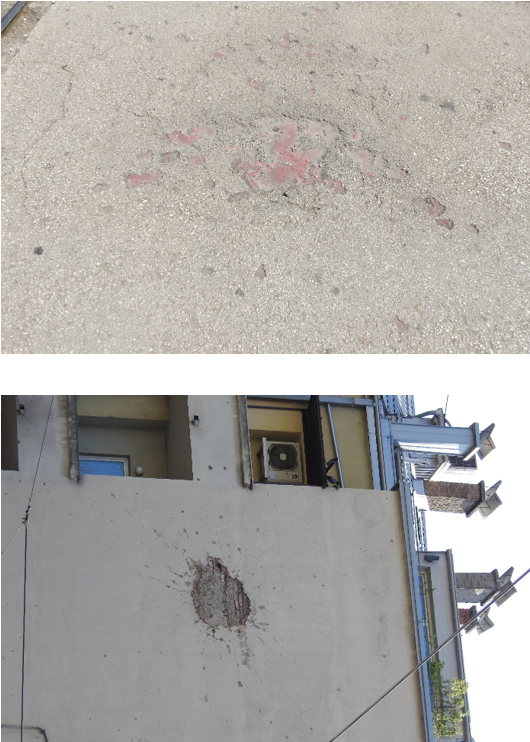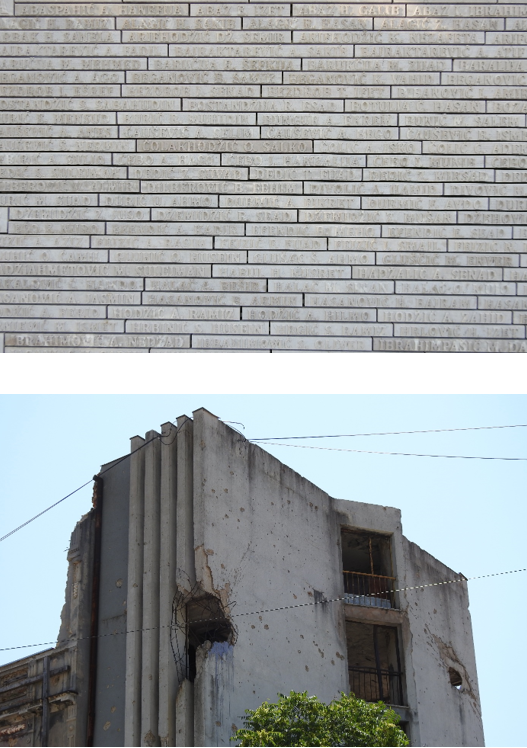
For your satisfaction and suggestions
İGÜMER

“Do you sleep well, Major?
If, in addition to two thousand, I give you responsibility
for these eleven of mine, what would you lose?
Can you sleep, Major?
With two thousand ghosts at night?
Forget about sleeping, can you even live,
can you live for one minute without screaming?”
These words poured from Wolfgang Borchert’s pen in 1947. He was only 26; his life cut short like a broken branch. He left behind just one play: The Man Outside. It told the story of a soldier who, upon returning home, found himself a stranger even in his own country. Because what remains after war is not only ruined buildings, but the ghosts carried on the backs of the living. Ghosts are the heavy burden not only of the dead, but of those condemned to survive. And those ghosts would, only a few decades later, descend upon Bosnia—haunting the streets of Sarajevo, the bridge of Mostar, the forests of Srebrenica.
The Bosnian War (1992–1995), erupting just a few years after the fall of the Berlin Wall, bitterly reminded humanity how genocide—something we vowed “never again”—was still possible in the heart of Europe. Sarajevo endured a siege lasting 1,425 days; the longest in modern history. People carried bread and medicine through tunnels dug beneath the city. Children tried to attend school under the watch of snipers. Those waiting in line for water in courtyards were shot.
Yet before the war, Bosnia was the name of a hope. In Sarajevo, the call to prayer and church bells rose to the same sky. The Mostar Bridge did not only unite two banks of the Neretva River; it symbolized a civilization where cultures lived together. During holidays, neighbors exchanged sweets; at weddings, Bosniak songs and Serbian tunes echoed at the same table. People did not just feel “Bosniak” or “Serb” but “Yugoslav”—because identities brought them together rather than tearing them apart. Bosnia’s mosaic was not just a social order; it was also a hope for humanity.
And one morning, that hope shattered. Neighborhoods turned into trenches, friendships into silence, songs into laments. That is why Palikuca’s astonished words in Don’t Forget Mostar still echo:
“War, Pedja! How could such a thing be? People who had treated each other as brothers for fifty years—would they now face one another in battle? Would decades of common life explode into pieces in a matter of months?”
Today, when you walk through Sarajevo’s streets, the answer lies in the bullet holes covering the walls of its buildings. And on the pavements you notice red marks: the “Roses of Sarajevo.” The craters left by mortar shells, filled with red resin, have been turned into silent memorials. Each one, like new shadows added to Borchert’s ghosts.
And then came the darkest moment: Srebrenica, summer 1995. 8,372 Bosniak men and boys systematically executed in a matter of days—before the eyes of the world, in a place declared a UN “safe zone.” Since then, every July 11, newly identified remains are laid to rest. Mothers still wait for the bones of their sons. One mother, donating her son’s shirt to the Genocide Museum, wrote upon it:
“I will soon be eighty. If I die without ever receiving all of my son’s bones, let at least his scent remain here.”
Where bodies are destroyed, people cling to scents. Humanity is forced to preserve even the smell of its children.
This is why Mustafa Kemal Atatürk’s words, “Peace at home, peace in the world,” still resound among Bosnia’s ruins. It is not merely a political principle; it is the rawest truth echoed in a mother’s tear, in the shadow falling across a child’s empty desk. For no cause can justify the loss of a mother’s child; no ideology can explain turning a city into a graveyard.
The essence is this: war is futile. It turns neighbors into enemies, cities into cemeteries, music into mourning. Futile, because it leaves behind nothing but ghosts. Today, in the streets of Bosnia, those ghosts whisper Borchert’s words back to us:
“Can you live one minute without screaming?”
Assoc. Prof. Dr. A. Yüksel BARUT
Vice Dean, Faculty of Health Sciences
Asst. Prof. Dr. Emrah TÜNCER
Department of Social Work


© Copyright 2022 Istanbul Gelisim University All Rights Reserved.